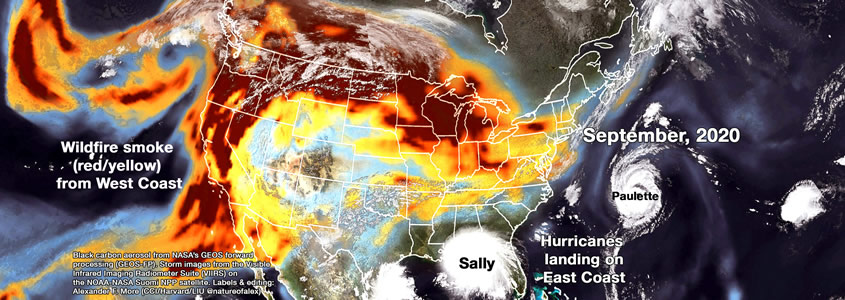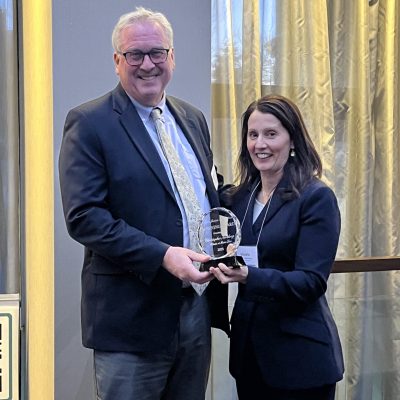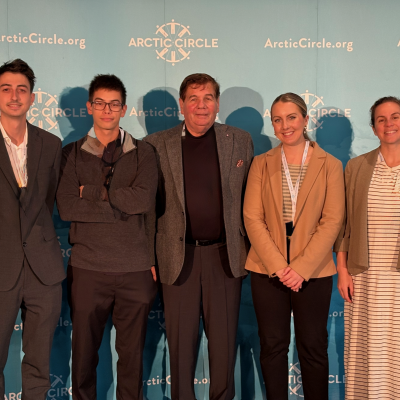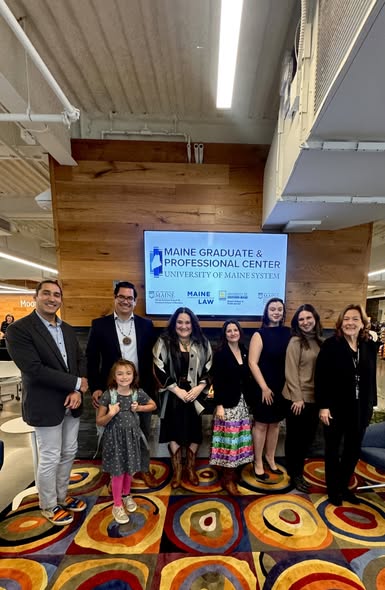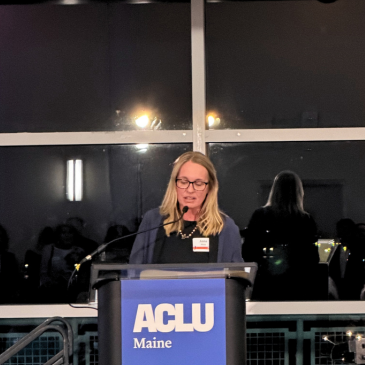Experts from the University of Maine, Harvard and Long Island universities, and the University of Maine School of Law have created a website with 10 talking points titled: “Why Climate Change Matters To Your Security, Health & Wealth.”
The site offers a one-stop shop for undecided voters and the general public to understand how climate change affects the most sensitive aspects of their everyday lives, and how efforts to reduce and reverse its effects represent the defining opportunity of our time.
Paul Andrew Mayewski, Distinguished Maine Professor and director of the Climate Change Institute at UMaine; Alexander More, associate professor of environmental health at LIU and research associate at Harvard and the CCI; and Charles H. Norchi, the Benjamin Thompson Professor of Law at Maine Law and director of the Center for Oceans and Coastal Law, framed the talking points and the research supporting them.
“The authors drew on their distinct disciplines of law and science to deliver this public interest project,” said Professor Charles Norchi. “It is a further example of the Law School’s commitment to public service and to collaboration across disciplines.”
Their featured talking points on the new website include:
- Multiple authorities from the U.S. Department of Defense have named climate change the leading security risk to this country. Extreme droughts, sea-level rise, and other threats to infrastructure weaken the effectiveness of defense at home and abroad.
- The effects of climate change and pollution on health are life-threatening, a problem worsened by the convergence of climate and public health crises. For example, longer summers and warmer winters have caused tick populations to grow exponentially, causing Lyme disease to spread throughout the Northeastern U.S.
- The same warming caused by climate change means mosquitoes carrying dengue hemorrhagic fever and the Zika virus can now reach New England, causing tropical diseases to threaten our health.
- In the last six months, scientists have shown that exposure to pollution is a risk factor for COVID-19.
- The current situation could represent a great opportunity for economic prosperity and a healthier, more secure future. Efforts toward climate change mitigation and resiliency have created the most vibrant new sector of the economy — renewable energy — with exponential growth in new, enduring, high-quality jobs and U.S.-made technologies that are attracting billions of dollars in investments, and that could boost the U.S. back toward a leadership role in the global economy.
At Maine Law, Professor Norchi directs the Center for Oceans and Coastal Law which includes the Arctic Law Fellows program. He is a recipient of the Fulbright Arctic Ministry of Foreign Affairs award for Iceland and has been recognized for his work by election as a fellow in the World Academy of Arts and Sciences, the Explorers Club, and the Royal Geographical Society (London). He serves as chair of the American Association of Law Schools (AALS) Section on Admiralty and Maritime Law.
To learn more about this project, visit https://whyclimatematters.com/.

